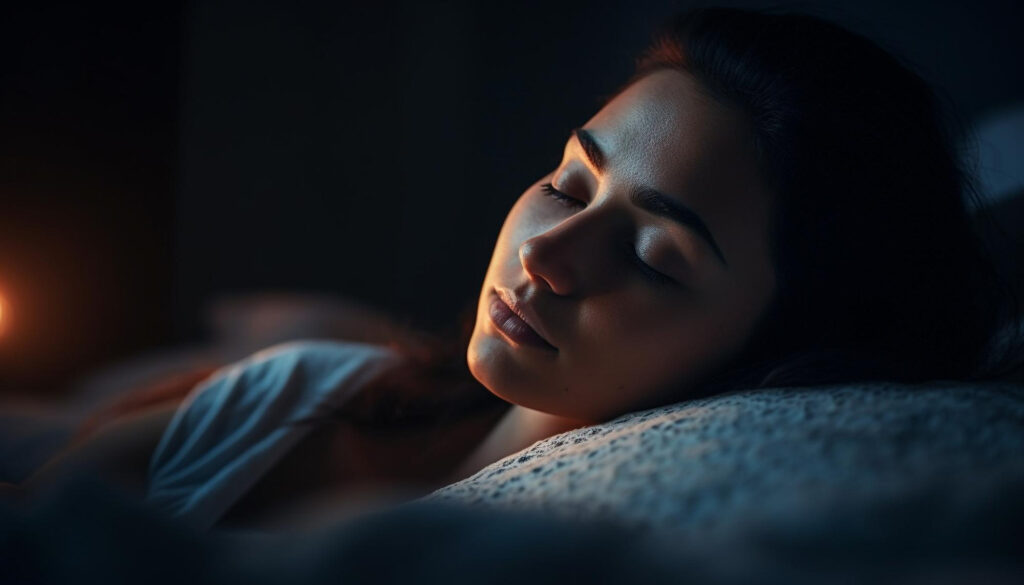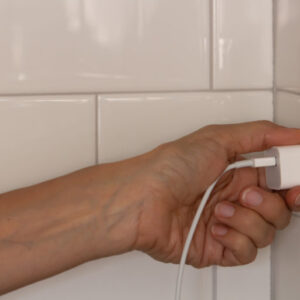What role does the pelvic floor play in your pre-bedtime and sleeping habits? Not by much, but I swear I’ll find the connection.
I teach that having to wake up in the middle of the night to urinate is not a good indicator as a pelvic floor physical therapist.
When a patient admits to waking up once, twice, or three times a night to use the restroom, I talk to them about bladder irritants, the importance of being hydrated before bed, and how to “retrain” their bladder through habits.
All of these things are crucial to keep focusing on, but there’s also another reason we shouldn’t be getting up in the middle of the night to go to the bathroom: it indicates that we aren’t entering the crucial REM (rapid eye movement) cycle!
Throughout REM, our bodies go through a number of amazing things. It is a crucial sleep stage that affects mood, memory, and learning.

Antidiuretic hormone (ADH) is also secreted during this period. The primary function of ADH is to minimize the amount of water excreted through urine, thus conserving your body’s fluid capacity.
We urinate less and secrete more ADH when fluid needs to be stored rather than lost. ADH secretion diminishes, and we urinate at the regular frequency (every two to three hours, with a strong flow lasting eight to twelve seconds) when we are well hydrated.
Not only does ADH contribute significantly to hydration, but it also has a major impact on our capacity to sleep at night!
An adult who drinks enough water should need to go potty every two to three hours. Thus, how are we expected to sleep for more than eight hours at a time without having to urinate?
ADH REM sleep induces an increase in the production of ADH, which in turn reduces the volume of urine produced. This results in less frequent urination and, presto!
We can now go to sleep without urinating!
The conclusion is that if you have trouble getting into your REM sleep cycle, you won’t secrete as much ADH, your urine production will remain at the “daytime” pace, and you will eventually need to urinate at night.
The solution is to develop healthy sleeping habits, which will help you enter your REM cycle, produce more ADH, and avoid having to wake up in the middle of the night to go to the bathroom. You might unavoidably need to get up to urinate if you drink 32 ounces of water an hour before going to bed.
Additionally, alcohol inhibits the release of ADH, which increases the production of urine and dehydrates the body.
Therefore, it’s possible that if you have a glass of wine before going to bed, you will need to urinate during the night.
Suggestions for Good Sleep Habits:
1. Establish a regular sleep routine by going to bed at approximately the same time every night.
2. Establish nightly routines: meditate, take a bath, or listen to music. These ought to be soothing pursuits that help you signal to your body when it’s time to sleep.
3. Make sure to exercise on a regular basis for at least two hours before going to bed.
4. Nicotine and coffee are stimulants that will disrupt your sleep, so cut back on both. Try to cut back on caffeine after twelve. Initially, withdrawal from nicotine will make it difficult to fall asleep. But once the withdrawal stage passes, research suggests that you should be able to sleep better.
5. Eat nothing just before going to bed. Aim for a minimum of two hours of dinner before going to bed. But research has shown that having a small snack before bed helps people sleep better.
6. Steer clear of alcohol: while it acts as a sedative and helps you fall asleep at first, it will disrupt your sleep, causing you to wake up more frequently and maybe experiencing more nightmares.
7. To make it simpler for you to fall asleep, take brief naps during the day to accumulate “sleep debt.”
8. Only use your bedroom for sleeping and having ***! Aim to avoid using devices, eating, or watching TV in bed. Instead of connecting your bedroom with activities that could cause tension, you want to identify it with sleeping.
9. Put an end to screen time. Using screens—TV, phones, tablets, and laptops—two hours before bed can throw off our biological clock. Our brains are “confused” by the light emission, leading us to believe it is daytime.
10. Ensure that your bedroom is cozy, peaceful, and cool!





